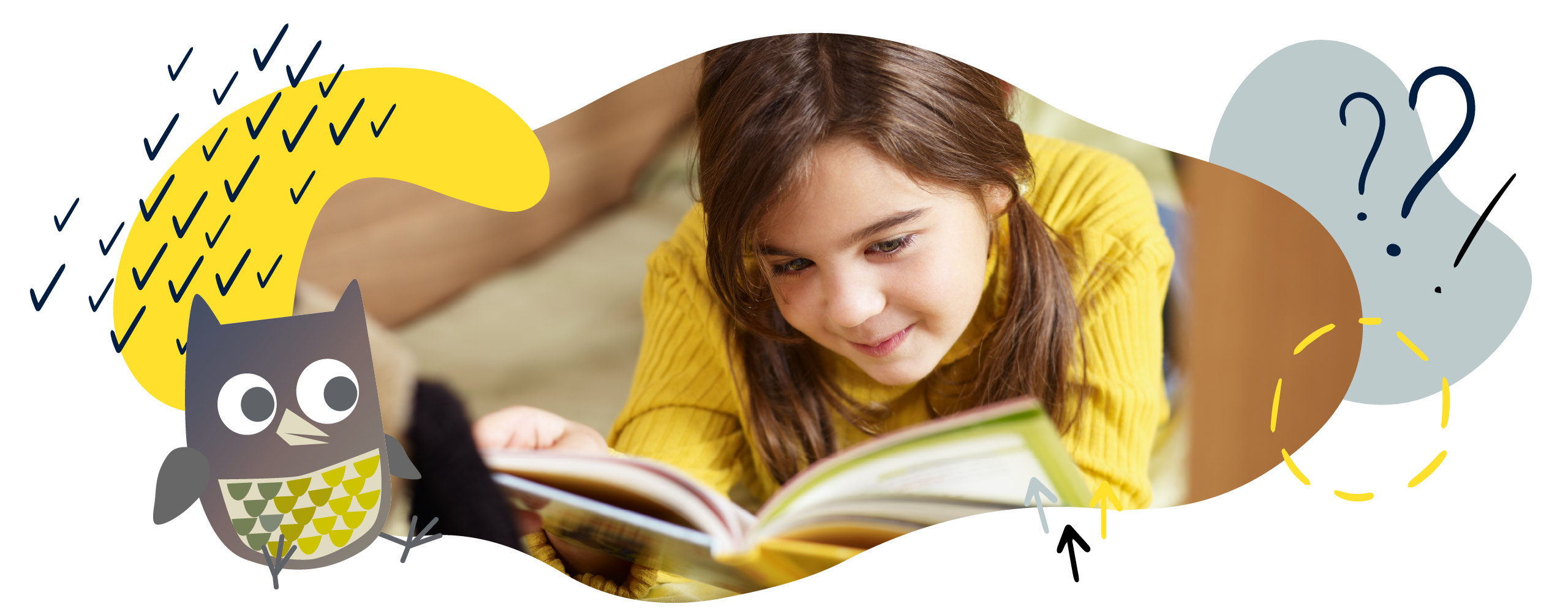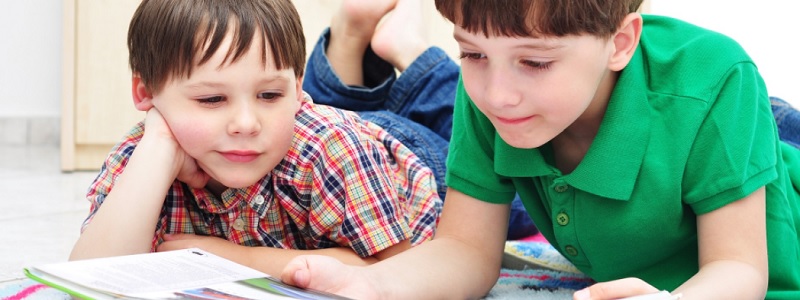Reading for pleasure
If you can encourage your child to read for pleasure, they will really reap the benefits. It might not seem like a particularly important task, but actually, research shows that reading for pleasure can be directly linked to children’s success throughout their time at school and even into adulthood.
Reading for pleasure opens up new worlds for children. It gives them the opportunity to use their imagination to explore new ideas, visit new places and meet new characters. Interestingly, reading for pleasure also improves children’s well-being and empathy. It helps them to understand their own identity, and gives them an insight into the world and the views of others. Check out some of our top tips below, including articles on how to build a culture of reading at home, how to help your child choose books and more.
How to choose a book
For little readers (3+). Advice on how to choose the best book for your child and enjoy reading together.
Developing Reading Skills
For Junior readers (7+). Find our recommendations for developing reading skills here!
Inspire your child to read more
For older readers (10+). Read our top tips to inspire readers, even as they move from Primary to Secondary.
Here are some ideas for encouraging your child to read for pleasure:
- Set aside a special time – just a few minutes a day is enough to create a reading habit.
- Get caught reading yourself – show that reading for pleasure is not just for children.
- Read to each other – if your child really doesn’t want to read on their own, then read together. You read a page, then they read a page. Or one of you could read any dialogue. Be brave and put on different voices.
- Value the books they choose to read – all reading is valuable for a child’s development. Some of us prefer non-fiction; some of us prefer comics. One child might like superhero books; another might a book of football statistics.
- Set a challenge – can they read ten books before they’re ten? Can they read a book from six different genres: a comic, an information book, a funny book, a sci-fi book, a classic and an instruction manual?
- Reading buddies – reading to a younger sibling can boost your child’s self-confidence and communication skills.
- Audiobooks – audiobooks allow children to experience a book above their own reading level. It also allows you to share a book together or make the most of those car journeys. Listening to a story over and over again can improve vocabulary and encourage deeper comprehension.
- Read-a-thon – join a sponsored reading event to raise money for charity.
- Stage and screen – use your child’s favourite films or games as a springboard into reading. Knowing the characters and storyline can be a helpful bridge into reading a longer story.
- Book club – find out about local book clubs.
Reading at home with children 5+
Exploring your local Library
Guest blogger, Clare Turner, is a Primary School Librarian with a passion for books and reading for pleasure. Read her top tips on making the most of your library.
Not interested in reading?
Take a look at our advice on how to help struggling and reluctant readers, including ideas and book suggestions to help your child fall in love with books.
Reading at home with children under 5
Have a listen to our podcast episode below, from The Little Pod. In this episode, we talk all about books, and reading with your little one! Whether you read at bedtime, after nursery or school is finished, or struggle to find time at all… you’ve probably heard lots of people saying it’s a good thing to do but we get into why, as well as how.
How do you find time? How much time is the right amount of time? Which books should you pick? And most of all… how do you make sure it’s fun?
With special guests, picture book author Naomi Jones and Oxford University Press Children’s Publisher, Katie Haworth





